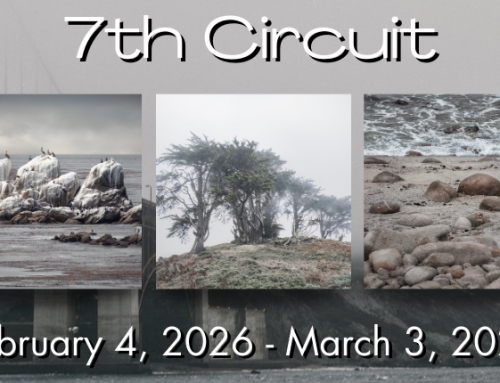Digital marketing expert Sheri Chandler will be hosting a marketing workshop at City’s the next New Heights session April 12th. Prior to the workshop, she sat down for a Q&A to discuss the importance of focusing on marketing.
Q: Often filmmakers say to me that they are artists and just want to focus on the creative aspect of their work (either writing, directing or producing), why is it valuable for filmmakers, especially writers and directors working on independent films, to understand film marketing and to be involved with the marketing process for their films?
Sheri: I’m not really sure how this idea that artists can only focus on the creative aspect of their work and someone else will completely take care of everything else came from, but it is not correct and I don’t think it ever has been. Every artist has to support the promotion of their work if they want to continue it as an enterprise. If it is just an expensive hobby, then that is another story. Authors, musicians, actors and directors do press interviews and tour their work. They meet with fans and participate in designing cover art and use social media to stay in touch, or the modern ones do anyway. Some are lucky enough to have a publisher or distributor to arrange for this kind of promotion, but most indie filmmakers, especially unknown indie filmmakers, do not have that kind of help. The work still needs to be done. So if you have to undertake the work yourself, you need to know how to do it; where to start, when to hire for jobs you just don’t have the contacts and knowledge to do and what money to budget to pay for the help. The process can be very creative, especially when you have more time and energy than money, but it helps to know what is going to get results and what is a waste of time. You can stumble around until you know, or you can learn ahead of time and waste less time and money stumbling.
Q: How has the film industry changed over the past 5-10 years, particularly for independent filmmakers? How do these changes influence the need to understand film marketing?
Sheri: Obviously, the cost of equipment and software for independent filmmaking has come down and that enables many people who would not previously have been able to afford to make films now able to make them. Also, there more outlets distributing films to a global audience than there ever have been.
But the downside is this has led to an oversupply of films, which drives down the demand by consumers and the sales numbers for sales agents and distributors. There are just far too many films being made, and the digital outlets for them now are more selective about the titles they take. Data plays a big part in what Amazon, Netflix, etc. decide to carry. If these platforms do not see some historical data that would indicate your title, your cast, your film’s pedigree or the genre of your film is in demand, they will pass because there is so much from which to choose.
Whereas it might have been possible to recoup the production cost of an indie film on the minimum guarantees paid by distributors, this is now rarely the case even for films that did see a world class premiere at Sundance. It is very uncertain what films will be able to bring in from the market and that makes it very uncertain what budget levels should be. Digital sales figures are difficult to predict because very few are making those figures public unless they were spectacular returns.
There is a lot more “noise” in the market and for those who are tasked with connecting independent titles to audiences. It is more difficult to get the attention of a broad audience without spending on par with the studios. This post from No Film School gives some insight from distributors at this year’s SXSW festival http://nofilmschool.com/2017/03/forget-wider-audience-future-film-specific The smart indie distributors are now looking for titles with niche appeal for specific audiences who can be strategically reached without having to spend multimillions. That includes utilizing talent that has its own following on social media and it isn’t just talent on the screen. A lot more time and attention has to be spent on making an incredibly strong film for a very targeted, and ideally underserved, audience that will get them excited enough to spread the word to their friends once they hear about it.
Understanding, in advance, who your film is being made for and how exactly you will reach them to tell them about it will help your film succeed in rising above all of this noise. But most filmmakers do not spend any time thinking about this. They think about it after the fact, once all of the time, effort and money have already been spent.
Q: Often as an indie filmmaker, we work incredible hard to MAKE the film. How important is it to work just as hard, if not harder, on marketing the film?
Sheri: It is definitely hard work to make a great film, but it is equally as difficult to get people to know it exists and to watch it. You might be surprised to learn that these days many distributors are looking to filmmakers to do a lot of the marketing of their titles. This piece from Adam Leipzig that came out during Sundance this year pointed out this trend “There will be even more responsibility put on producers and directors to deliver audiences for their movies, down-shifting traditional marketing efforts from the distributors to filmmakers.” https://www.culturalweekly.com/sundance-infographic-2017/ I’ve seen this too, especially for films sold for no minimum guarantee (MG). If distributors aren’t going to put much work and money in to find an audience and nurture it and you aren’t either, you may as well not have made the film.
Q: What are the key benefits to attending a film marketing workshop like this one? What can filmmakers do to ensure that they make the most of this workshop?
Sheri: Personally, I have attended many panels and seminars where big name producers and people from studios go up on stage and give vague details about how their films succeeded or how they see the trends in the market. Many times these people aren’t even part of the day to day dealings of the titles so they can’t speak to the details. The audience walks away with little information on the HOW of the success. I want people who attend this workshop to leave with pages of notes and their brains humming with ideas of things they need to do for their films. I am going to talk about audience identification and how figure out the drivers of your story that would resonate with an audience, where to find that audience through using online tools, what is the difference between a mass, a niche and a core audience and how realistic, especially financially, it is to move from smaller to bigger audiences. I will go over promotional tactics like publicity, advertising, using social media, organizational outreach and email as marketing tools and what those tactics can cost so that they are budgeted for BEFORE the film is started. I will touch on crowd-funding too because that can be a marketing tactic, but it shouldn’t be used too early or it will fall flat. It is a lot to learn in 2 hours, but I want to touch on as many topics as I can, ones that I know indie filmmakers need to learn about. Of course, I’ll also answer questions from attendees. Hopefully, the participants will feel like this is time well spent.



